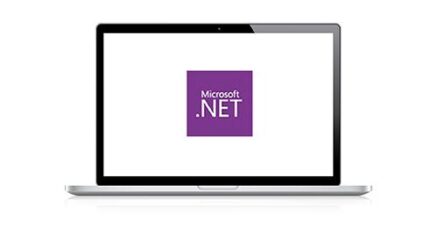
Django is an industry-favourite Python framework that is free and open-source. But surely, you know that already.
However, have you explored the academic potential that it promises? If not, let’s do that today.
We will help you leverage Django’s unmatched versatility. In this post, we will discuss the Django framework facets ideal for developing different types of websites.
Additionally, we will help you identify career opportunities with Django and help enhance your professional life.
We believe learning Django is a valuable and impressive skill to add to your resume, regardless of your overall goals.
The Outline of Django
There’s no better alternative for a web application-building tool than Django. It supports developers in producing significant but efficient output.
You must have identified that most web applications share similar features, such as authentication, information retrieval, and cookie management.
As developers, you typically code the same functionality into every web application. Django’s job is to simplify the task at hand.
The program groups the various functions into a specific set of reusable modules called the web application framework. Overall, the Django web framework allows you to write codes more efficiently and reduce web development time.
We encourage all web developers to get on board with the Django framework to explore the never-before-seen horizons of web development.
Beginners can also choose Django to embark on an adventurous and rewarding journey in web development. The robust web framework is beginner-friendly and efficiently streamlines the complexities of developing dynamic websites.
We have long maintained a belief that mastering the nuances of Django is not just a skill; it’s a key move in excelling in your career.
A custom-tailored Django course for beginners typically provides the opportunity to experience this modern framework. Practicing the necessary Django skills will allow you to develop scalable web applications.
You can either be a complete newbie eager to explore web development or a passionate developer looking to improve your skills – you must consider these courses to become the ultimate champion of Django. It will help boost your career prospects and put light on a path of opportunities in web development.
Why You Should Choose Django- Explained
Django’s advanced-level Python web framework promises exceptional efficiency and simplified solutions. Its sleek design attracts users. Moreover, it offers various built-in tools and an Object-Relational Mapping (ORM) system for innovative database management.
Our industry data points reveal that Django has quickly become the go-to choice for web developers globally. This is due to its rapid development, security, and scalability. It boasts an all-inclusive set of tools and libraries, which come in handy during development. Django’s built-in tools have the potential to counter common technical challenges.
History and Evolution of Django
The original tale of Django begins with a group of web developers tasked with developing and maintaining news websites. In 2003, after developing a handful of websites, their team decided to reuse the codes and design patterns. This approach eventually transitioned into a generic web development framework (Django, 2005).
After several upgrades, the framework had its first milestone release. We have recorded five releases till now, each introducing new functionalities and bug fixes. Considering its popularity and demand today, we believe Django is a booming, collaborative, open-source project with countless users and contributors. The web framework resembles its original predecessor. However, it has gradually transformed into a versatile, sleek tool with dynamic potential.
Standing today, it is challenging to quantify the popularity of server-side frameworks in the present timeline. Most beginners wonder if Django is popular enough for them to enrol in a course. Looking at the growing number of popular websites that employ Django, the ever-growing community that is contributing to the codebase, and the number of professionals that are working for support services, we can report that it’s an emphatic yes; Django is indeed a trending and popular framework!
Importance of Django in Modern Web Development
We are well aware that the online market is saturated with web frameworks. However, we ask you to note that Django carries a Python language base and is arguably the most popular Python web framework.
Every 8 out of 10 developers choose to work with the Django web framework over others for the following reasons.
- Development Speed
The Django framework ensures a sleek and simple installation process. It allows you to get started with the web framework within hours. The tool’s original vision was to quickly implement any web architecture in code.
Hence, it features a rapid development and clean design. It has made a name for itself as it allows short-end codes. However, you can code in short lines in Django since it promises a ready-to-use structure for generic web development tasks.
- Cost Effective
Django continues to be a free and open-source Python project. Its thriving and dedicated community evaluates and provides the necessary support for the software. The Django Software Foundation (a non-profit organisation) endorses the framework.
They organise frequent meet-ups and community events to motivate fellow developers to contribute to the Django project. The background mechanism makes up the feature-rich, premium, and free-to-use web framework.
- Popularity
There are countless open-source projects alongside the well-established websites that use Django. The framework is constantly evolving due to its popularity. A host of credible individuals and companies provide free and paid support and set up a robust infrastructure. They offer the necessary solutions if you ever encounter development challenges while using Django.
Why Take a Django Course?
Before enrolling in Django classes, we encourage you to learn what you can do with it. The popular web framework has several use cases for web development. It is adept at developing everything—from websites and news platforms to social media and more.
Python objects, called models, empower Django web applications for data management. Its straightforward query API encourages the allied database to be searched and facilitates complex statements.
The Django template system encourages developers to outline an output document’s structure. You can receive content here in nearly any format. The web framework backs its inherent templating system (Jinja2 Python library) and offers the option to modify it to facilitate other systems.
Common Professional Uses for Django
Django allows you to explore other features like task automation and project deployment using Git. It is compelling to mention that every job role varies, and Django caters to each efficiently.
- Django Developers
- Full Stack Web Developers
- Python Developers
- Backend Python Developers
- Back End Web Developers
- Software Engineers
- Web Programmers
- Infrastructure Developers
- Data Scientists
Comparison of Django with Other Web Development Frameworks
If you are building sophisticated web applications, you must begin by identifying the ideal backend framework. Although there are many alternatives available, we will talk about Django. Moreover, we will also try comparing Django with other popular frameworks. This exercise will help the world of web frameworks improve.
1. Django: The Outstanding Choice
Django is primarily renowned for its “batteries included” approach. Simply put, the framework brings its own set of built-in features and tools. It helps you develop complex applications quickly. We find Django a go-to choice for most web development jobs today due to its robust security features, smart high-traffic load management, and strong community support.
2. Flask: A Lightweight Substitute
If Django seems like a complex web framework for you, Flask can be a great substitute. As a predominantly compact framework, we find its simple-to-use design beneficial for small to medium-sized projects. Additionally, its flexible ability to integrate with other technologies has had many takers within the industry.
3. Ruby on Rails: A Community-backed Machine
Like Django, Ruby on Rails has also built a loyal following due to its “convention over configuration” approach. The approach encourages you to use its best practices and follow the suggested guidelines to build high-functional applications. The mature ecosystem is a staple, and Rails is a standout for us.
4. Node.js: A JavaScript-Based Backend Option
Node.js has been gaining fast traction over the last few years. We find it necessary to mention that it’s a JavaScript-based backend framework. Most developers like its ability to process high traffic volume without any complication to be helpful. Additionally, we believe Node.js is a fine tool for working with other JavaScript-based frameworks.
Overview of Django Courses
A reputable Django course in Kolkata promises new opportunities in web development. If you have a passion for web development, you must ideally achieve mastery over Django. Upon completing the course, you will be a certified Django web framework programmer who can quickly build robust, scalable applications.
In a typical Django course in Kolkata at a reputed institution, there are live classes that feature both in-person teaching and online study. Expert instructors conduct both courses in real-time.
You can opt for the in-person Django training, where you will participate in a face-to-face class at a local facility. It’s necessary to mention that in-person training classes encourage local networking.
Therefore, you can set up communication channels with fellow students and gain industry insights. We encourage such connections as they can pay off handsomely in the long term when you enter the job market.
Search
I Want to Learn...
Category
Explore OurAll CoursesTransform Your Dreams
into Reality
Subscribe to Our Newsletter
"*" indicates required fields






